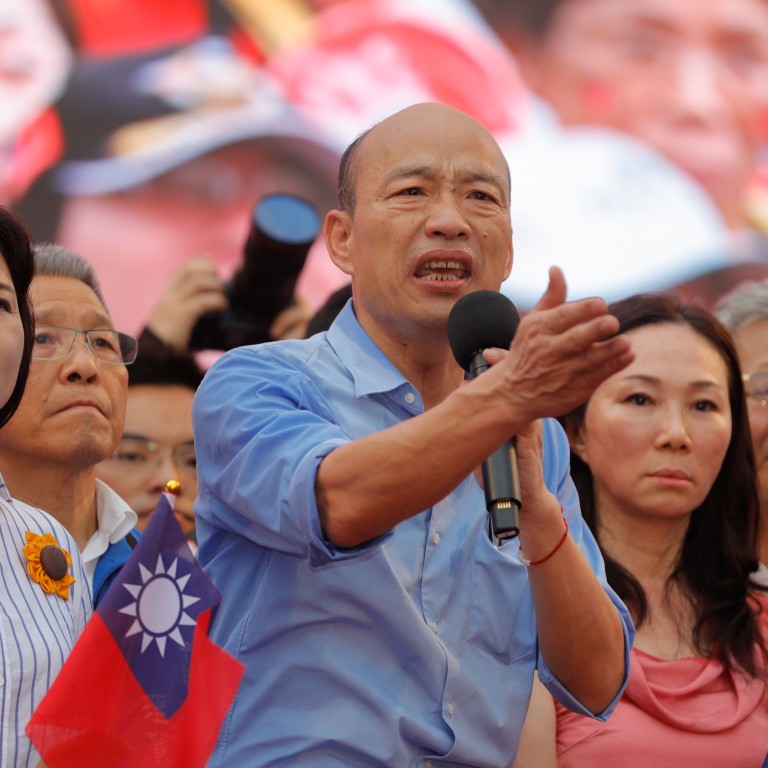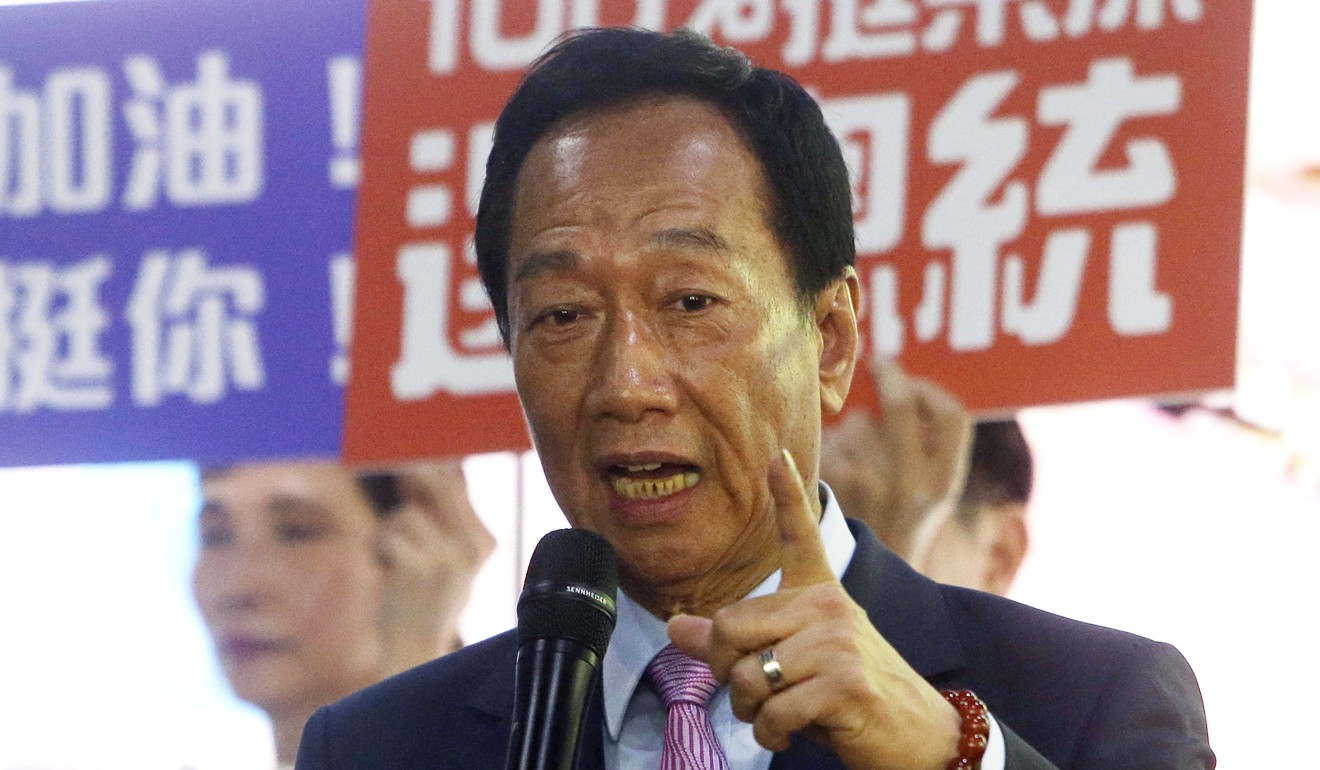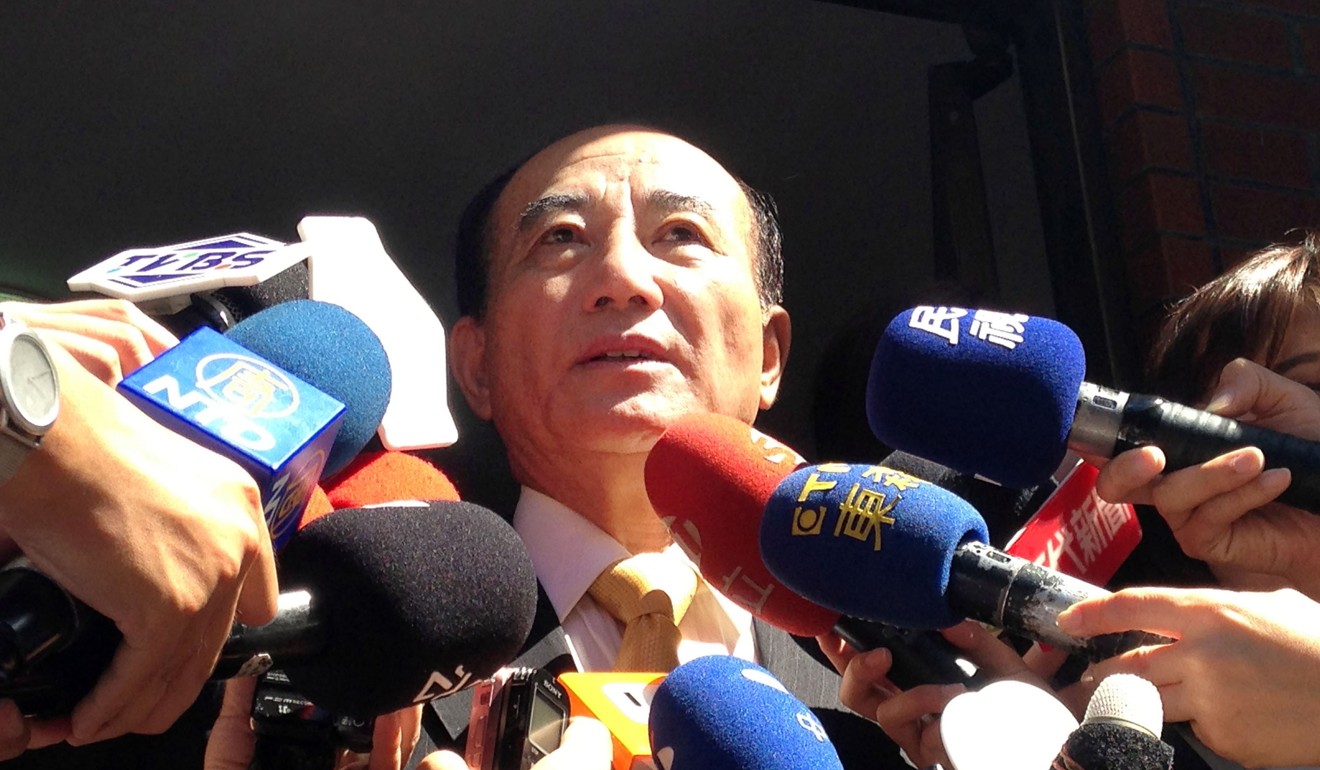
Taiwan’s presidential hopefuls fight on as Kuomintang primaries draw to a close
- Bitter contest to represent Beijing-friendly KMT in next year’s leadership election could leave party in tatters, analysts say
- Results of telephone polls to be announced on Monday, with Kaohsiung mayor Han Kuo-yu ahead after latest round of voting
The race to decide who will represent Taiwan’s main opposition party, the Kuomintang (KMT), in next year’s presidential election is hotting up, with the results of the bitterly contested primaries set to be announced next week.
The five candidates have engaged in fierce campaigning since May, and their infighting has threatened to divide the Beijing-friendly party and undermine its chances of success in the 2020 polls, analysts said. The primaries end on Monday after a week of voting via telephone polls.
One of the bitterest contests has been between Terry Gou Tai-ming, the billionaire founder of electronics contract manufacturer Foxconn, and Han Kuo-yu, the mayor of Kaohsiung.

In the latest opinion poll released on Thursday by the Green Party, Han, who helped the KMT win a landslide victory in November’s local government elections, won 39 per cent of the vote, ahead of Gou’s 32.5 per cent.
Eric Chu, the former mayor of New Taipei City, came in third with 14.5 per cent of the vote, followed by former Taipei county magistrate Chou Hsi-wei and the president of the KMT’s Sun Yat-sen School, Chang Ya-chung, each with less than 10 per cent.
During his appearance on a television talk show on Thursday, Gou, who resigned as Foxconn chairman last month, asked Han to pull out of the presidential race and turn his attention to looking after Kaohsiung, the city of which he has been mayor for just six months.
“I hope you can give it serious thought in the next two days and not to be affected by others’ opinions,” he said.
“After I have done the job [of president] for four years, [and if] you run Kaohsiung well, people will naturally support you [to run for president in 2024],” Gou said.
The businessman, whose commercial empire employs more than 1 million people around the world, also criticised the KMT for its use of telephone voting, which he said restricted the respondents to those who had a landline and were available between 6pm and 10pm.
“Young people tend to use mobile phones more,” he said, adding that younger voters were also less likely to sit at home waiting for a call from a pollster.
Gou said also that Han would too easily yield to mainland China if he became president, given his pro-Beijing stance.
In a more shocking revelation, Gou hinted in an interview with the Era cable news network that he might quit the party if he lost in the primaries, saying that while he was considering whether to enter the presidential election race, he was advised by some people to run as an independent.

In an interview with a local radio station on Friday he said he would decide what to do after the results were announced on Monday.
While Han has mostly ignored Gou’s barbs and challenges, he has not lacked support, managing to attract tens of thousands of people to each of four rallies held across Taiwan.
It is that level of backing that makes him favourite to be named the KMT’s candidate in the presidential race, according to Fan Shih-ping, a professor of political science at National Taiwan Normal University.
“Han has showed his strength in rallying supporters,” Fan said, adding that Gou not only lacked the ability to rouse a crowd but when he did speak to the public he delivered only boring speeches.
While Han and Gou are the clear front-runners to land the KMT vote, the fighting between all five candidates could end up costing the party dear, analysts said.
In an interview last week, former legislature speaker Wang Jin-pyng, who pulled out of the race for the presidential candidacy after complaining about the voting process, said the way in which the primaries were being handled threatened to split the party.
“After the KMT won the local government elections and took control of 15 of Taiwan’s 22 cities and counties, many people thought it would be able to regain power in the 2020 presidential election,” said Wang Kung-yi, a political-science professor at Chinese Culture University in Taipei.
“But the infighting ahead of the primaries over who should run and the fierce competition during the race has not only undermined the KMT’s chances in the January poll, but also threatened to divide it.”

